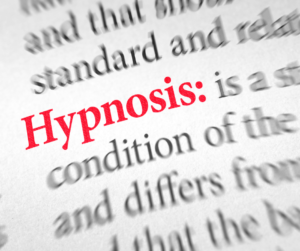In the realm of psychology and wellness, hypnosis stands as a fascinating yet often misunderstood concept. With its roots deeply embedded in ancient practices and modern therapeutic approaches, the meaning of hypnosis extends far beyond mere entertainment or mystique. In this article, we embark on a journey to unravel the intricate layers of hypnosis and its profound implications for anxiety management.

At its core, hypnosis can be defined as a state of focused attention, heightened suggestibility, and deep relaxation. Contrary to popular misconceptions perpetuated by stage shows and Hollywood portrayals, hypnosis is not a form of mind control but rather a therapeutic technique aimed at tapping into the subconscious mind to facilitate positive changes in behavior, thoughts, and emotions.
Hypnosis typically involves a trained practitioner guiding an individual into a state of deep relaxation and heightened suggestibility. Through soothing verbal cues, imagery, and relaxation techniques, the practitioner helps the individual access their subconscious mind, where deeply ingrained beliefs, memories, and emotions reside. Once in this state, the individual becomes more receptive to therapeutic suggestions aimed at addressing specific concerns or goals, such as reducing anxiety and promoting overall well-being.
In the realm of anxiety management, hypnosis offers a powerful tool for addressing the underlying factors contributing to anxious thoughts and behaviors. By accessing the subconscious mind, hypnosis can help individuals uncover and reframe negative beliefs, alleviate stress and tension, and cultivate a sense of inner calm and resilience. Some common applications of hypnosis in anxiety management include:
- Addressing Root Causes: Hypnosis can help individuals identify and address the root causes of their anxiety, such as past traumas, negative self-talk, or limiting beliefs. By exploring these underlying factors in a safe and supportive environment, individuals can begin to heal and transform their relationship with anxiety.
- Cultivating Relaxation: Through guided imagery, progressive muscle relaxation, and deep breathing exercises, hypnosis induces a profound state of relaxation that counteracts the physiological effects of anxiety. By regularly practicing these relaxation techniques, individuals can train their minds and bodies to respond more calmly to stressors, reducing overall anxiety levels.
- Rewriting Negative Scripts: Hypnosis allows individuals to rewrite negative scripts and replace them with empowering and affirming beliefs. By reinforcing positive affirmations and visualizations during hypnosis sessions, individuals can gradually shift their mindset from one of fear and apprehension to one of confidence and resilience.
- Building Coping Strategies: Hypnosis can help individuals develop effective coping strategies for managing anxiety symptoms in real-life situations. By rehearsing relaxation techniques, visualization exercises, and self-soothing methods during hypnosis sessions, individuals can equip themselves with valuable tools for navigating challenging circumstances with greater ease and confidence.
The true meaning of hypnosis transcends its popular portrayal as a mere parlor trick or novelty act. Instead, hypnosis represents a powerful therapeutic tool for unlocking the innate potential of the mind and harnessing its capacity for healing and transformation. By delving into the depths of the subconscious mind, hypnosis offers a pathway to profound self-discovery, empowerment, and resilience in the face of anxiety.
As we continue our exploration of hypnosis and its myriad applications in anxiety management, let us embrace its transformative potential and embark on a journey of self-exploration and growth. Together, let us unlock the mysteries of the mind and cultivate a future free from the grip of anxiety.
*If you want to learn more about what hypnosis really is and experience a free session, watch my program here.
